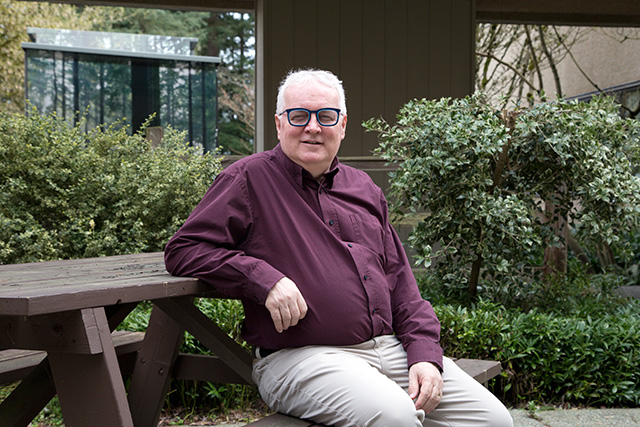Anthropology instructor wins Community Heritage Award
The District of North Vancouver recently recognized Bob Muckle's work with a Community Heritage Award in the category of heritage advocacy.

Capilano University anthropology instructor Bob Muckle is devoted to learning about the Indigenous Peoples of North America, human evolution and all things archeological. He's passionate about educating his students and the public about the same. Muckle's work was recently recognized by the District of North Vancouver with a Community Heritage Award in the category of heritage advocacy.
The District lauded Muckle for initiating and running field schools for CapU students and for his presentations in the community on the importance not only of forgotten Japanese logging and residential camps in North Vancouver's Seymour River Valley, but also North American archeology. Muckle was also recognized for publishing a photo essay on a field school in BC Studies and leading excavations with hundreds of kindergarten to Grade 12 students.
Participants in the archeology field schools directed by Muckle have documented several previously unrecorded places of interest in the Lower Seymour Conservation Reserve. These include Japanese logging and residential camps, as well as early 20th century Euro-Canadian residences, cabins and trails. A Japanese logging camp that was established around 1919 appears to have become a secret residential camp from about 1924 to 1942, with evidence of a dozen cabins. Based on Muckle's nomination, this site has been placed on the BC Register of Historic Places. It's also being considered for placement on the Canadian Register of Historic Places.
"The research the students have done is important because we are documenting parts of the past that are rapidly being erased from the physical landscape," says Muckle. "This is especially important because most of the areas we have documented have no written records about them, nor are they evident in the collective memory of individuals. The 200 Capilano students who have already been part of the field schools have added to our understanding of B.C. archeology and history in meaningful ways."
Four sites have been excavated and more than 2,000 artifacts have been collected. Muckle has delivered at least 70 related presentations.
"Archeology often tells a different story than what is written or recalled by memory," says Muckle. "What people choose to write and recall is biased. What people tend to throw away is less so. Mostly archeologists study what people chose to deliberately throw away. Garbage doesn't lie."
Muckle is pleased to provide research opportunities to students, right in Capilano University's backyard. Many of the field school students have gone on to successful careers as archeologists working in B.C.
Submitted by: Communications & Marketing
